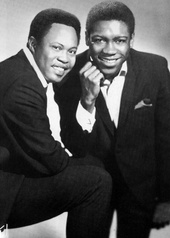
"You're All I Need to Get By" is a song recorded by the American R&B/soul duo Marvin Gaye and Tammi Terrell and released on Motown Records' Tamla label in 1968. It was the basis for the 1995 single "I'll Be There for You/You're All I Need to Get By" from Method Man and Mary J. Blige.
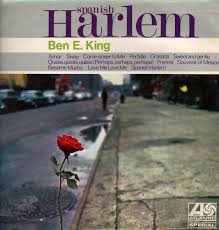
"Spanish Harlem" is a song recorded by Ben E. King in 1960 for Atco Records. It was written by Jerry Leiber and Phil Spector and produced by Jerry Leiber and Mike Stoller. "Spanish Harlem" was King's first hit away from The Drifters, peaking at number 15 on Billboard's rhythm and blues and number 10 in pop music chart.

"I Say a Little Prayer" is a song written by Burt Bacharach and Hal David for Dionne Warwick, originally peaking at number four on the U.S. Billboard Hot 100 pop singles chart in December 1967. On the R&B Singles chart it peaked at number eight.

"Freeway of Love" is a song by American singer Aretha Franklin. It was written by Jeffrey Cohen and Narada Michael Walden and produced by the latter for Franklin's thirtieth studio album Who's Zoomin' Who? (1985). The song features a notable contribution from Clarence Clemons, the saxophonist from Bruce Springsteen’'s E Street Band. Sylvester, Martha Wash, and Jeanie Tracy provided backup vocals on "Freeway of Love".
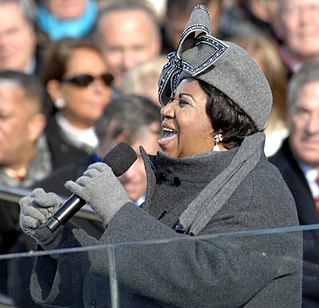
This discography documents the releases of albums and singles by Aretha Franklin. Widely regarded as the "Queen of Soul", she has sold over 75 million records worldwide, making her one of the best-selling R&B female artists of all time. Billboard ranks her as the 34th Greatest Artist of all time. Franklin has scored 73 entries on the Billboard Hot 100, the most among women for nearly 50 years until Nicki Minaj passed her in 2017. Billboard listed her as the 41st Top Gospel Artist of the 2010s. She has accumulated 20 No. 1 hits on Billboard's Hot R&B/Hip-Hop Songs.

"Until You Come Back to Me (That's What I'm Gonna Do)" is a song written by Morris Broadnax, Clarence Paul, and Stevie Wonder. The song was originally recorded by Stevie Wonder in 1967, but his version was not released as a single and did not appear on an album until 1977's anthology Looking Back. The best-known version of this song is the 1973 release by Aretha Franklin, who had a million-selling top 10 hit on Billboard charts. The song reached No. 1 on the R&B chart and No. 3 on the Hot 100 chart in 1974. It became an RIAA Gold record.

"Something He Can Feel" is a song composed by Curtis Mayfield for the 1976 motion picture Sparkle. The song, a love ballad in a Chicago-/Philly-soul style, became a number-one hit on the Billboard's R&B singles chart in the United States twice with two separate recordings: a 1976 version by Aretha Franklin from the film's soundtrack, and a 1992 cover by girl group En Vogue.

"Groovin'" is a single released in 1967 by American rock band the Young Rascals that became a number-one hit and one of the group's signature songs. It has been covered by many artists, including the Young Rascals themselves in other languages. A slightly different version was later released on their third studio album, Groovin'.
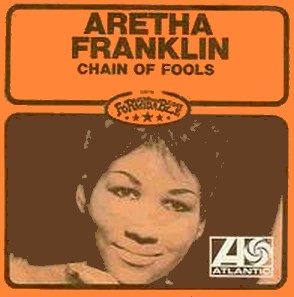
"Chain of Fools" is a song written by Don Covay. Aretha Franklin first released the song as a single in 1967 and subsequently it appeared on many of her albums. It hit number one on the Billboard Hot Rhythm & Blues chart and number two on Billboard's Hot 100 chart. In the lyrics, the singer has been with her boyfriend for five years but realizes she's one of his "chain of fools," women with whom he's been cheating. Others tell her to leave him, but she says his love is too strong and she's too weak. Yet someday, she predicts the chain will break.

"Baby I Love You" is a popular song by R&B singer Aretha Franklin. The only single release from her Aretha Arrives album in 1967, the song was a huge hit, peaking at number 4 on the Billboard Hot 100 Singles chart and spending two weeks at number-one on the Hot Rhythm & Blues Singles chart. In the UK, the song rose to number 39 in August 1967, spending four weeks on the chart. It was featured in Martin Scorsese's 1990 film Goodfellas. A live performance appears on the album Aretha in Paris (1968).
"Share Your Love with Me" is a song written by Alfred Braggs and Deadric Malone. It was originally recorded by blues singer Bobby "Blue" Bland. Over the years, the song has been covered by various artists, most notably Aretha Franklin who won a Grammy Award for her 1969 rendition. Other artists who covered the song include The Band in 1973, Kenny Rogers in 1981, and most recently, Van Morrison in 2016.
"I Wonder" is a 1944 song written and originally performed by Pvt. Cecil Gant. The original version was released on the Bronze label, before Gant re-recorded it for the Gilt-Edge label in Los Angeles. The record made it to number one on the Juke Box Race Records chart and was Pvt. Gant's most successful release. In February 1945, pianist, Roosevelt Sykes hit number one with his version of the song. Roosevelt Sykes version is notable in that it replaced Pvt. Gant's version, at number one on the Juke Box Race Records chart.
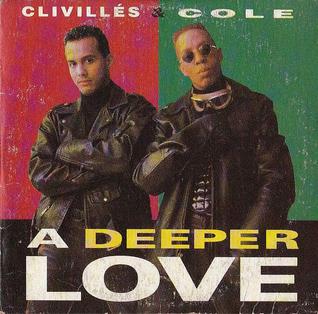
"A Deeper Love" is a song written by American producers Robert Clivillés and David Cole, and performed by them as Clivillés & Cole featuring vocals by Deborah Cooper and Paul Pesco. The song was the duo's fifth number-one on the US Billboard Hot Dance Club Play chart. On other US charts, "A Deeper Love" peaked at number 83 on the soul singles chart and number 44 on the pop chart. Overseas, especially in Europe the single charted higher, going to number 15 in the UK and number eight on the Dutch Top 40.
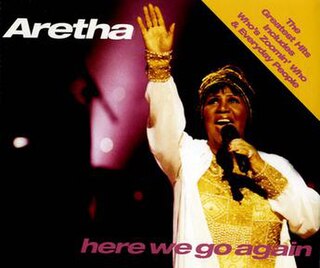
"Here We Go Again" is a song by American singer and songwriter Aretha Franklin. It was written by Trina Broussard, Jermaine Dupri and Trey Lorenz for Franklin's thirty-fourth studio album, A Rose Is Still a Rose (1998), while production was helmed by Dupri and Manuel Seal. The song is built around replayed portions of "The Glow of Love" (1980) by Italian-American post-disco group Change. Due to the inclusion of the sample, Mauro Malavasi, David Romani and Wayne K. Garfield are also credited as songwriters. The song was the second single released from A Rose Is Still a Rose in June 1998 and reached number 76 on the Billboard Hot 100, also becoming Franklin's fifth number one on the US Dance Club Songs.



